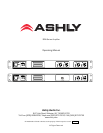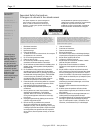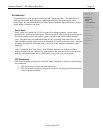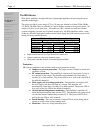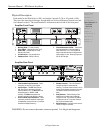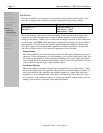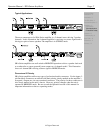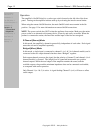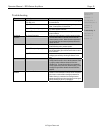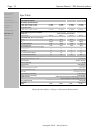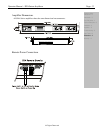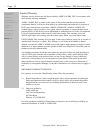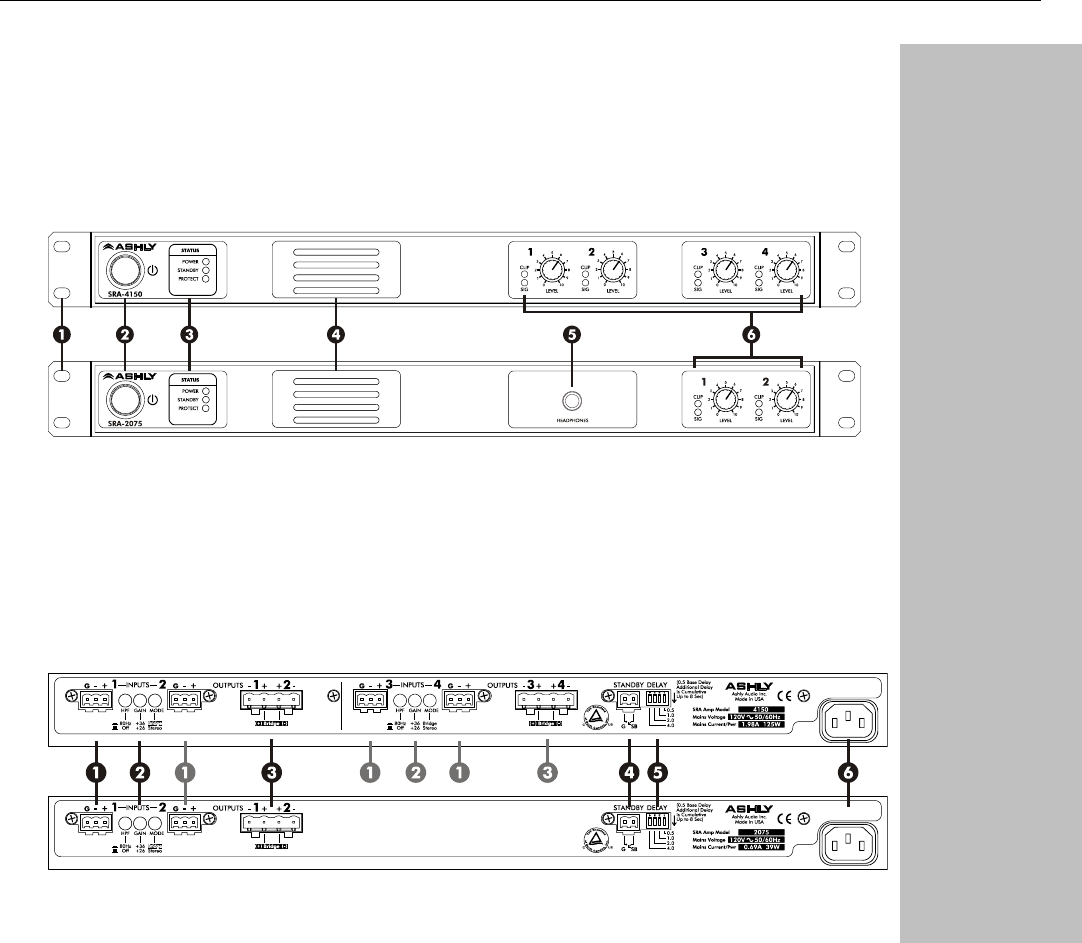
Operator Manual – SRA Series Amplifiers Page - 5
All Rights Reserved
Physical Description
Each model in the SRA-Series is 1RU, and weighs 9 pounds (2 Ch) or 10 pounds (4 Ch).
They have the same physical design, though there are obvious differences between two and
four channel versions. The model number is indicated on the left side of the front panel
Amplifier Front Panel
1. Mounting Holes – For rack mounting.
2. Power Switch – Switches the unit on or off
3. Status LEDs – Indicate status of: Power,
Standby, and Protect
4. Air Inflow Vents – Cool air enters here
5. Headphone Jack – 2075 & 2150 only
6. Channel Attenuators & LEDs – These knobs
adjust the attenuation of the input signal of
each channel from ∞ to 0. The Sig LED will
begin to light when the output voltage reaches
approximately 0.3 volts. When clipping occurs
the Clip LED will light.
Amplifier Rear Panel
1. 3-Pin Euroblock Input Connectors – These
connectors are used for all input signals.
2. Input Switches – The HPF switch sets the
High Pass Filter for each pair of channels
channel to 80Hz or Off. The Gain switch sets
the amplifier gain to +36dB or +26dB
sensitivity. The Mode switch selects the
amplifier’s operating mode (Bridge or Stereo).
3. Screw Terminal Output Connectors – These
connectors provide the amplifiers output signal.
In Bridge Mode, the even channel (+) connector
becomes the Bridged Channel (-).
4. Standby Connector – This 2-Pin Euroblock
connector provides for remote standby
switching. The Power switch must be in the On
position for the Standby connector to be active.
This feature includes a 0.5 second turn-on
delay.
5. Delay Switches – These switches provide
additional turn-on delay when the Standby
connector is used. The switches are additive,
providing as much as 7.5 seconds of delay to
the 0.5 second Standby delay.
6. Mains Connector - Connection to the mains is
via this 3-Prong IEC connector
WARNING: Do not remove the mains connector ground. It is illegal and dangerous.
Important Safety
Instructions – 2
Introduction - 3
The SRA Series - 4
Physical Description - 5
Front Panel
Rear Panel
Installation - 6
Operation - 8
Troubleshooting - 9
Spec Table - 10
Dimensions - 11
Warranty - 12



